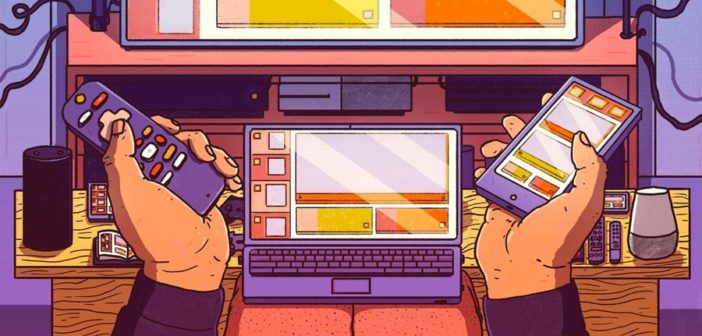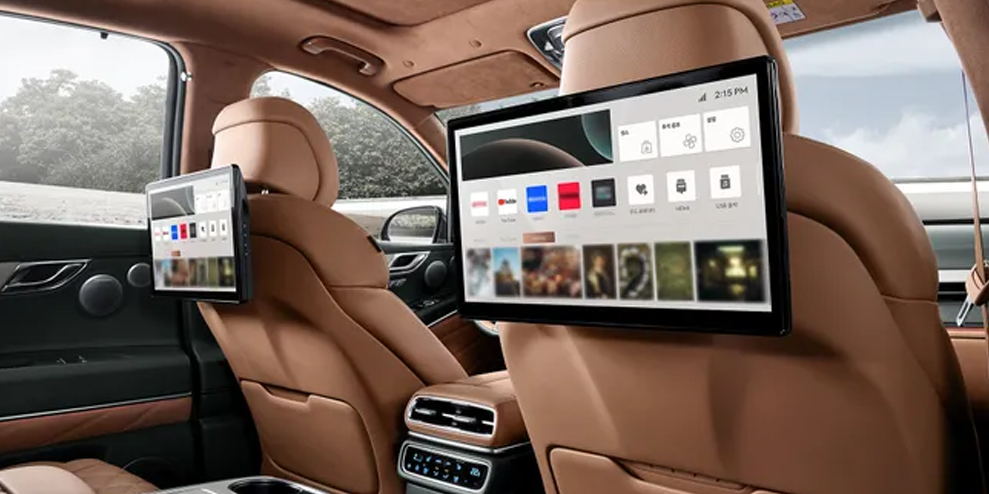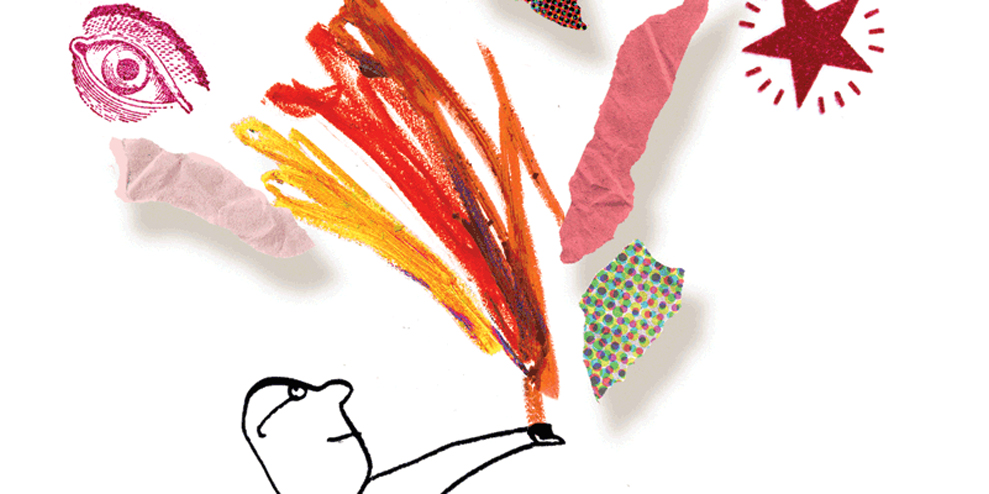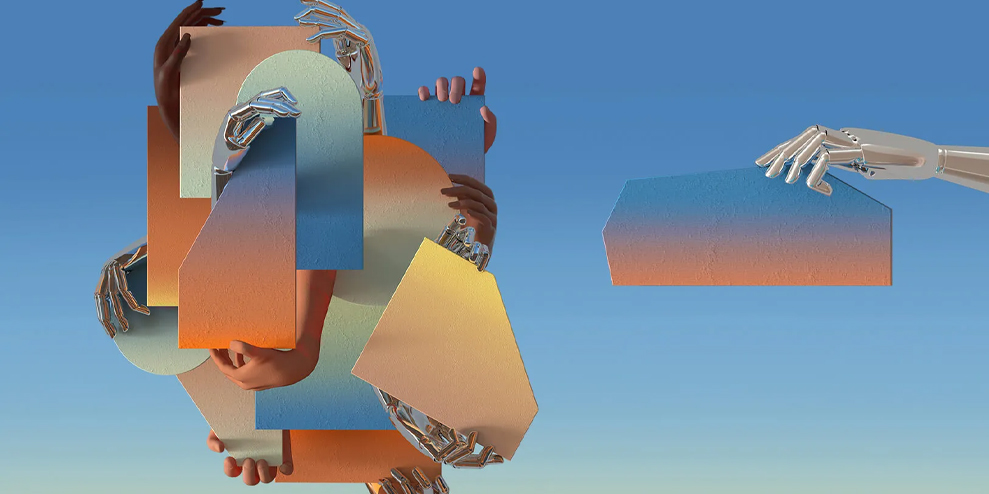“Hey smartass, what is the future of television?”
Same question, every goddamn year! Ever since cable morphed into streaming, and we started watching more video on phones than couches, even mere acquaintances have started demanding answers from you about the future. Last December, you mumbled something like “Stranger Things is soooooo good,” before squirming out of the conversation. Alas, this year that strategy is doomed to fail. This year you will need to equip yourself with some trenchant commentary to fend off your soused interlocutor.
Never fear. We are here to help you through this plight. This handy cheat sheet contains a variety of clever responses to that perennial inquiry: What is the future of television?
For your examples, start with the app du jour: HQ Trivia, the live game show that has clocked 400,000 concurrent users. If your office party happens to intersect with the 3 p.m. or 9 p.m. ET airings, be sure to launch the mobile game at the pub. With the app open, try gesticulating like a possessed sorcerer making oracular pronouncements. Something like: “This. This. This is the future of television.” Lay it on thick, Nostradamus.
Onto the second example. More under the radar (and therefore better for your hot take) is Mosaic, a new interactive film/app from Steven Soderbergh. People love hearing that the future of storytelling will be “choose your own adventure” stories, so their eyes will light up like Hulu subscribers caught in the headlights when they see Mosaic. (Bonus points: Consider also mentioning the interactive children’s programming that Netflix launched this year.)
Be sure to say “TV shows will become apps” as often as possible. This phrase will make you sound like a sage technology pundit, because sage technology pundits have been repeating this mantra since at least the launch of Apple TV. Over a decade later, this old chestnut remains a perennial favorite. At its utterance, your audience will beam with delight, the same way grandpa smiles every time Fox News says “the war on Christmas.”
Depending on the age of your colleague, this could be an opportune moment to cite South Park. This season contains a running gag about the bottomless pit of Netflix programming. When Cartman calls a hotline to sell his new scripted superhero show, a customer service rep answers: “Netflix, you’re green-lit. Who am I speaking with?” Without even asking the nature of the show, the call center attendant asks, “Would you like a pilot, or just go straight to an order of six episodes?”
At this moment, tough questions could roll. “Have we reached peak TV yet?” a cubicle mate might ask. To this inquiry you must be unequivocal: “Absolutely not!” Just as no one wants their favorite cryptocurrency to crash, the public demands infinite seasons of Modern Family. Forever and ever and ever.
This rejoinder argues that the success of Netflix and Amazon Video will induce other tech behemoths to bumrush the party. In these very pages, Steven Levy has predicted that Apple, Google, and Facebook will usher in the third epoch of video (after broadcast and cable), complete with new innovations in form and content. The TV interface of the future could resemble a huge menu of subscription streaming services (including a new one from Disney that should drop any day). You might consider using this line: “That old canard about there being 500 channels and nothing on will soon become 500 streaming services and nothing on.” Say it as dryly as possible, using your best Ron Swanson impersonation.
This is also an excellent opportunity to deploy the secret weapon of prognostication: Declaring that the future already here. It’s an oldie but a goodie—“The future is now” always sounds insightful. In a perfect execution of the trope, Kevin Roose, the New York Times’ technology scribe, deployed the line earlier this year, when he asked and answered: “The messy, confusing future of TV? It’s here.” The oracle has spoken, and the answer is right in front of you.
First, you should casually summarize the television landscape, using the examples above to set the stage. Start with some daunting “content glut” statistics (#2), and then, like a stealthy media ninja, segue from content to form. (That old saw, “the medium is the message,” might ease the transition.) Next, introduce the concept of monied tech platforms joining the subscription video fray (#3), and mention the empowering qualities of user-controlled interfaces (#1).
You’re on a roll. A rapt audience of colleagues will likely gather around your wise words, enthralled to hear you wax futuristically. Finally, you can pivot to the coda, and like a Lannister at the Red Wedding, unleash your wrath. Go, girl:
“After amassing vast warehouses of profile data, technology platforms will pair those databases with algorithms, unleashing new insights into personalized programming. Advanced machine learning systems will inform studios and producers of untapped niche content streams, tailored specifically to narrow ideologies and interest graphs. Like fake news has done to text content, viewers will winnow their content choices to only those shows that reinforce their parochial worldview. Engorged on an endless supply of hyper-personalized programming, society will enter its Filter Bubble Phase.”
Wheh, they are dazzled! You need a breather. Time to engage the audience. Try asking this question: “What’s your favorite Netflix show?” (They’ll eat it up. People love to crow about their Netflix queue at parties.) Let everyone describe their favorites, and be sure to nod approvingly when they cite Orange Is the New Black or Master of None. (So good!) When it comes back around to your turn, pounce! Unfurl your deep cuts—the most obscure programming on earth. Here are some (startlingly real) offbeat shows to begin with:
- Dramaworld = magical realism + K-pop.
- Vanilla Ice Goes Amish = infamous white rapper + crafts + ascetic religion.
- Terrace House = slow television + Japan + boring reality + Hawaii.
- Drop Dead Diva = legal drama + mind-switching fantasy + Lifetime melodrama.
- Lip Service = Scotland + lipstick lesbians.
- Hit & Miss = Chloë Sevigny + transgender identity + hit women.
- Blue Mountain State = college football + raunchy comedy + deep midwest.
- Canada’s Worst Driver = Canucks + driver rehab + reality competition.
No one will recognize these obscure programs, but their Mad Libs nature is precisely your point. “It is as though these shows were created by an advanced database query,” you can pontificate. “In the future, all television will be produced through the logic of affinity graphs, like tag clouds mutating into video streams. The audience for any given program will get smaller and smaller, until eventually, we will produce television for an audience of only one person….” At this moment, you should take a deep breath and, like if Don Draper did a TED Talk, exhale knowingly. “Yes, that is the answer. You. You are the future of television.”
Your colleagues will be mesmerized, but unsettled. You have just prophesied a desolate future, one in which humanity becomes locked inside forsaken filter bubbles, each person consuming personalized shows, no longer engaging socially with television. Trapped in hellholes of hyper-niche programming, we will wander this grim media dystopia, like the mindless zombies of The Walking Dead.
Just then, in the somber silence, one junior manager sheepishly speaks up. “Is this like that episode of Black Mirror?” But none of the other coworkers have seen that episode, thereby proving your entire thesis. Inconsolable, your colleagues grow despondent, their sullen faces weary with the look of lost souls who have just binged a season of Storage Wars. Finally, in desperation, you glance at your watch and notice the time. “Hey, it’s 9 o’clock! Who wants to play HQ Trivia?”
The office party erupts in mirth and glee.
–
This article first appeared in www.wired.com
Seeking to build and grow your brand using the force of consumer insight, strategic foresight, creative disruption and technology prowess? Talk to us at +9714 3867728 or mail: info@groupisd.com or visit www.groupisd.com




